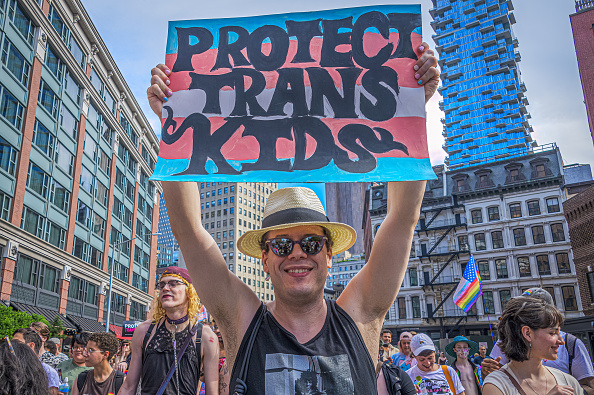The US is currently years behind its Western peers in restricting youth gender transitions, as the UK, Sweden, Norway and others limit access to hormones and surgeries for minors. But changing political winds, along with a pending Supreme Court case, could bring about a sea change over the coming year.
A federal court determined on Wednesday that Indiana’s ban on puberty blockers and cross-sex hormones for the purpose of youth gender transitions could stand, reversing a lower court’s temporary blocking of the law. A nearly identical court process unfolded in Tennessee last year, with the case now resting before the Supreme Court. Justices will hear oral arguments next month in the Tennessee case, and are expected to release a decision in late spring determining whether such bans are constitutional.
The Court’s 6-3 conservative majority will likely uphold restrictions on medical transitions for minors, but such a decision would not resolve the current split in the US over the issue. As it stands, 26 states restrict the procedures and 24 do not.
In early 2023, Donald Trump pledged to sign a law banning “child sexual mutilation” nationwide, and this month’s election results make a full US ban a strong possibility. Republicans will control the House, Senate, and presidency in the coming year, and the party has every reason to view bans on youth transitions as a winning issue. Ads highlighting Kamala Harris’s support for taxpayer-funded transition surgeries for prisoners, for example, were credited with winning over undecided voters in swing states.
Democrats have long objected to restrictions on transgender medical treatments, including for minors, generally siding with activists’ claims that the procedures are safe, effective, and medically necessary. The Biden administration has led the way on this front, with a whole-of-government effort to make legal and medical transitions more accessible through the work of numerous federal agencies, including the Department of Health and Human Services. Youth gender transitions, and opposition to state limits on such treatments, were key to those efforts. Further, the Biden administration is one of the petitioners currently asking the Supreme Court to strike down state laws banning such treatments for minors.
But the Democratic Party, having just seen 90% of US counties shift to the Right, is divided over how it should handle contentious social issues moving forward. Massachusetts Democratic Rep. Seth Moulton has been the subject of a week-long news cycle after arguing against male athletes in girls’ sports, but he has maintained his position amid criticism from his party and his own staff.
“If the radical Left continues to define the Democratic Party, then we’re just going to continue to lose,” Moulton has since said. As it becomes acceptable — and perhaps politically necessary — for Democrats to reject transgender ideology, it looks increasingly likely that a bipartisan consensus will jointly ban cross-sex treatments for minors at the national level.











Join the discussion
Join like minded readers that support our journalism by becoming a paid subscriber
To join the discussion in the comments, become a paid subscriber.
Join like minded readers that support our journalism, read unlimited articles and enjoy other subscriber-only benefits.
Subscribe